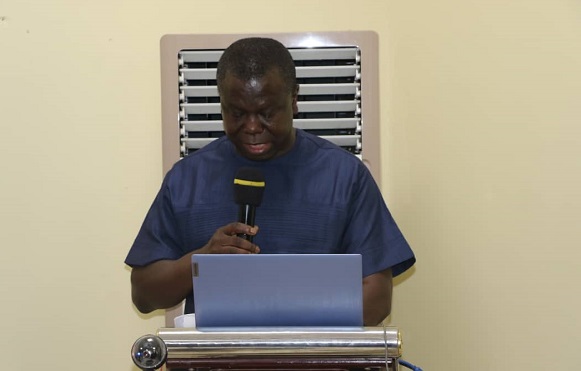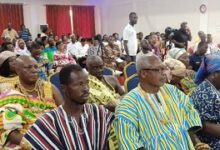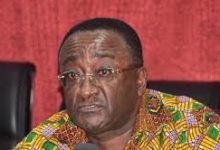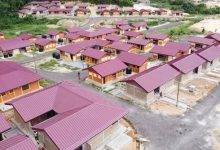
A three-day meeting of members of Parliament drawn from ECOWAS member states to champion efforts at eliminating malaria on the sub-region has opened in Accra yesterday.
The Regional Parliamentarian Network for the Elimination of Malaria (REPEL-malaria) has the mandate to keep malaria as a front burner on national and regional political and developmental agenda as well as to hold governments and institutions accountable to their commitments towards reducing the disease burden.
According to the World Health Organisation, ECOWAS accounts for about 10 percent of global at-risk malaria population, accounting for nearly half of all malaria cases and deaths in the world.
It estimates about 117 million malaria cases and 327,000 deaths in the region in 2020, an increase, of figures recorded in 2019, probably as a result of the COVID-19 pandemic.
In a speech read on her behalf, WHO Regional Director, Dr Matshidiso Moeti, said malaria cases were increasing in the African region with six high burden countries making up 55 percent of the global disease load in 2020.
“The 2021 World Malaria Report indicates that 95 percent of global malaria cases in 2020 occurred in Africa. There were 228 million new cases, 627,000 needless deaths and 80 percent of these cases were in children under five years of age,” she stated.
The COVID-19 pandemic, Dr Moeti noted, also had an added impact on the malaria burden in the region, increasing cases and deaths by two thirds.
To this end, she expressed fear that Africa could achieve its set targets for the elimination of malaria as a public health threat by 2030 as progress made over the years in the fight had slowed down.
The Director-General mentioned a low coverage in preventing malaria in at-risk populations, poor uptake and completion of intermittent preventive treatment (IPTp) among pregnant women and decrease in funding; both domestically and external, for sustainable malaria prevention and controls.
She thus charged MPs to use their positions and influence to accelerate efforts at reducing the disease prevalence in the region, harnessing innovative ways and expanding use of the approved first malaria vaccine to control malaria, especially among children.
“No one should die from a disease that can be easily prevented and diagnosed and that is entirely curable with available treatments,” Dr Moeti insisted.
The Health Minister, Kwaku Agyeman-Manu, in a speech read on his behalf, said malaria exerts a heavy toll on households, not only in terms of pain and illness, but also, on health spending, school absenteeism and reduced productivity.
The Minister noted that although the ECOWAS region had significant progress in reducing the disease burden, more needed to be done and the involvement of MPs was crucial to share best practices, exchange ideas and institute necessary mechanisms to fight malaria.
“I urge the network to institute the necessary mechanisms to ensure that they are regularly updated on the progress towards malaria elimination in the ECOWAS region, challenges and needed actions because it has a responsibility to ensure that malaria is kept high on the national and regional political and developmental agenda as well as to hold governments and institutions accountable to their commitments,” he stated.
BY ABIGAIL ANNOH







